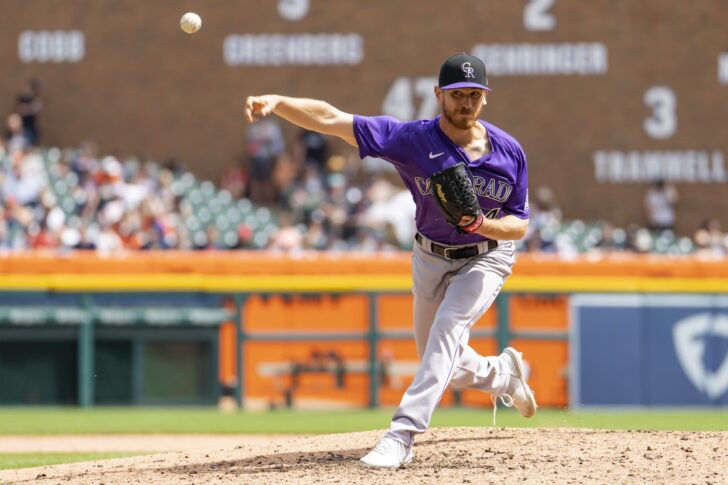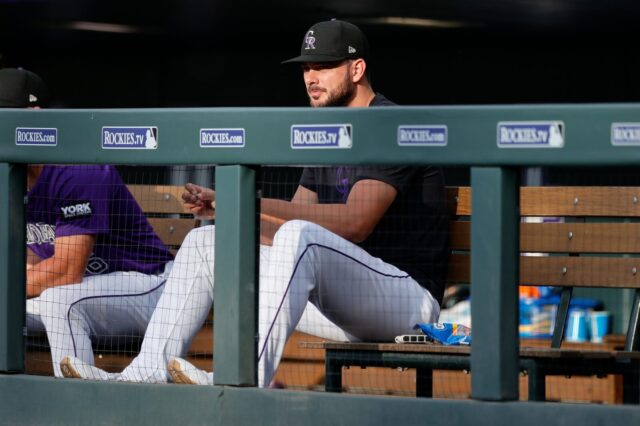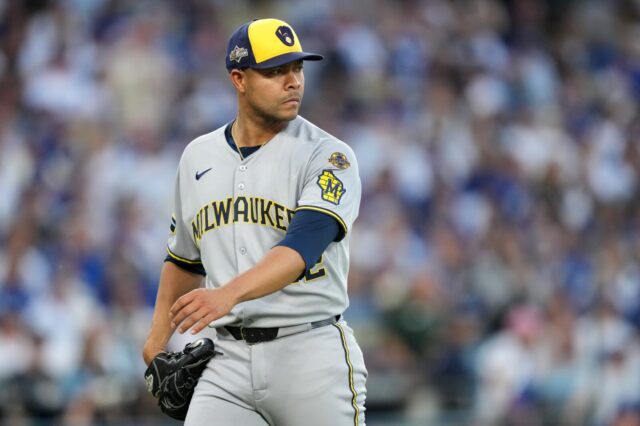When Colorado Rockies GM Bill Schmidt took over in the front office, he inherited an absolute mess.
The biggest star, maybe in the history of the franchise, had just been traded in disastrous fashion and another Top 10 player for the organization was on his way out the door.
Schmidt himself could only do so much about the current situation, especially with the interim tag still attached to his job title, and many fans and analysts were beyond perplexed by his general lack of action at the 2021 trade deadline.
Lost in a sea of outrage was a fairly reasonable explanation for why Trevor Story stayed on. Essentially, Colorado believes the draft pick they received in compensation for Story leaving is worth more than the prospects they were being offered. You can agree or disagree, but the reasoning was offered and simple to understand.
When it came to Jon Gray, however, things were a bit more complicated.
Gray was something of a unicorn in wolf’s clothing during his tenure in Denver. He has some of the best strikeout numbers in franchise history and also managed to pitch incredibly well at Coors Field, something very few have managed.
He still ranks as one of the best pitchers in franchise history and had regularly expressed a desire to stay with Colorado. So, the team rolled the dice and tried to retain Gray with a contract offer later in the year. But the Texas Rangers swooped in and offered a bit more money and the Rockies weren’t willing to match.
Of course, in hindsight, maybe they could have traded him for something but being honest with ourselves, a guy with a career 4.62 ERA wasn’t likely to net an impact player for half a season of his services.
Still, in terms of fully maximizing assets, the handling of Gray is a loss for the Rockies. At least, at the deadline it was.
Schmidt’s insistence on standing firm on his price, while it may have made his actions at the deadline a bit more confusing, was the right call given the exact moment it took place.
As hard as it was for just about everyone to involved in the organization to see him go, the early results suggest the Rockies have put that money to much better use.
Gray is getting $15 million from the Rangers this season. Instead of paying that to the guy who was their fifth best starter a year ago, the Rox instead spread that money out to Jose Iglesias ($5 million), Alex Colome ($4.1 million), and Chad Kuhl ($3 million), and had a little to spare.
They risked making a hole in their rotation where one didn’t exist before but believed they could make up for that lost value in the aggregate.
Of course, the biggest element of this dynamic so far has been Chad Kuhl.
To be fair, both Iglesias and Colome have already been vital to some early wins, but Kuhl being so reliable in his first four outings has been massive.
He has pitched 23.2 innings and allowed just five earned runs. Meanwhile, Gray has pitched just nine innings, has allowed seven earned runs and is currently on his second IL stint.
Nobody in Denver is rooting for Gray to fail, but you’d be hard pressed to make the argument in this moment that retaining his services at that cost would have been better for the Rockies. There were even some suggestions that the Rockies should have slapped the qualifying offer on Gray which would have meant paying him closer to $19 million for a year. They definitely don’t have any of these other players if they had done that.
We shouldn’t expect Kuhl to be the Rockies best pitcher all season or to maintain his current ERA of 1.90, making him one of the best pitchers in baseball. He’s going to have his bad days and his career numbers suggest he will, forgive the pun, cool off.
But it is entirely reasonable, if not altogether likely, that he is a more valuable pitcher this season than Gray at less than a third of the cost.
If that ends up being the case, then one of Schmidt’s more derided moves will actually have turned out as a plus for the lineup, the bullpen, and the rotation. And the budget.
There’s a long season left and plenty of time for this whole dynamic to swing wildly in any direction but at the moment it appears as though the Rockies and their new GM deserve credit for making a tough choice.



